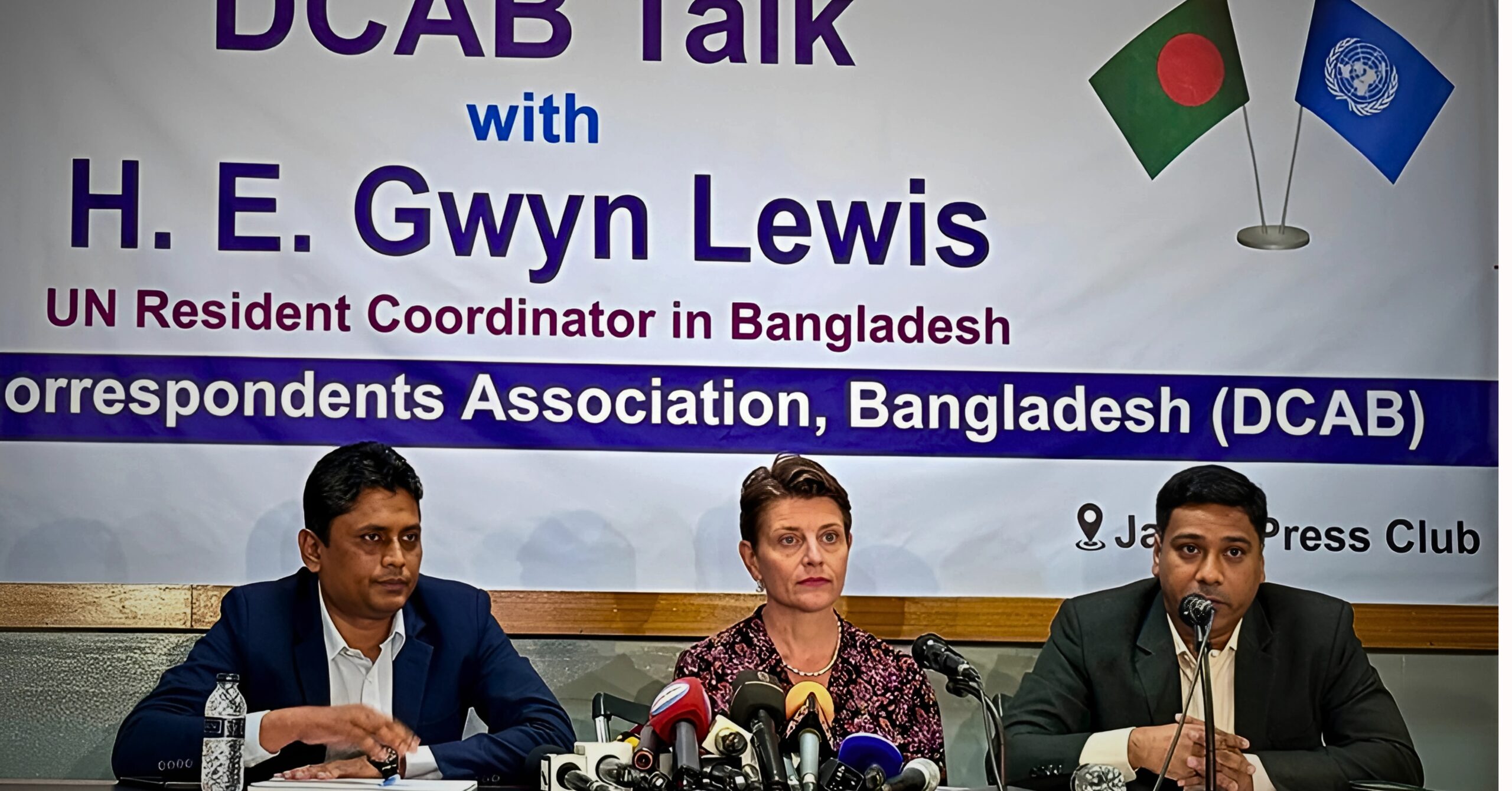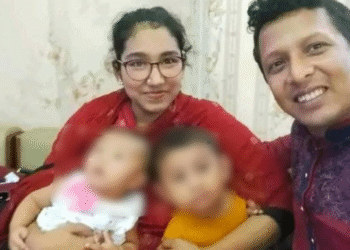United Nations Resident Coordinator in Bangladesh, Gwen Lewis, has clarified that the UN is not involved in any current discussions about establishing a humanitarian corridor through Bangladesh to assist people in Myanmar’s Rakhine state.
Speaking at the “DCAB Talk” organized by the Diplomatic Correspondents Association, Bangladesh (DCAB) at the National Press Club on Wednesday, Lewis responded to a question regarding the UN’s possible involvement in such a corridor.
She stated,
“We welcome any cross-border initiatives aimed at helping those affected by conflict. The UN is always ready to support such humanitarian efforts. However, there is currently no such humanitarian corridor, and we are not part of any ongoing discussions about one.”
Gwen Lewis further explained that the establishment of a humanitarian corridor is a formal and legal matter that would require the consent of both sovereign governments Bangladesh and Myanmar and possibly other relevant parties.
“If an agreement is reached, the UN can certainly assist. But as far as I understand, no such agreement exists yet,” she added.
Read More: Bangladesh Defeats Bhutan 2-0 in FIFA International Friendly Match
She emphasized that this is fundamentally a bilateral issue between the two governments.
“Only once the corridor is established can the UN offer support. Entry into Rakhine is extremely difficult right now. The region is experiencing conflict and uncertainty,” she said.
Lewis also noted that while the UNDP and UNHCR previously had a Memorandum of Understanding (MoU) with the Myanmar government to provide assistance in Rakhine, the UN’s presence there has significantly declined.
“We still have a few staff members and some partners working on the ground, but operations are very limited,” she admitted.
Touching on the broader challenges, Gwen Lewis acknowledged the growing difficulty in mobilizing international funds for the Rohingya crisis.
“Rohingyas want to return to their homeland with dignity. But the situation in Rakhine is currently not safe and remains highly challenging,” she said.
Her remarks underscore the fragile and uncertain conditions in Rakhine and highlight that, for now, the concept of a humanitarian corridor remains theoretical, dependent on official diplomatic agreements and substantial improvements in on-ground realities.
















